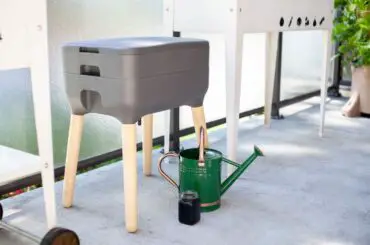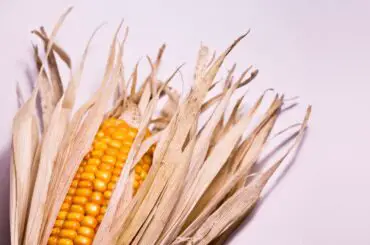How to avoid maggots in compost bin? What are they and where do they come from? Maggots are flies that lay eggs in a food source, such as compost or manure. Over time, the eggs hatch into small flies that feed on the food source and then leave behind a small amount of fertilizer. When you see a small group of flies around your compost pile, it likely contains maggots.
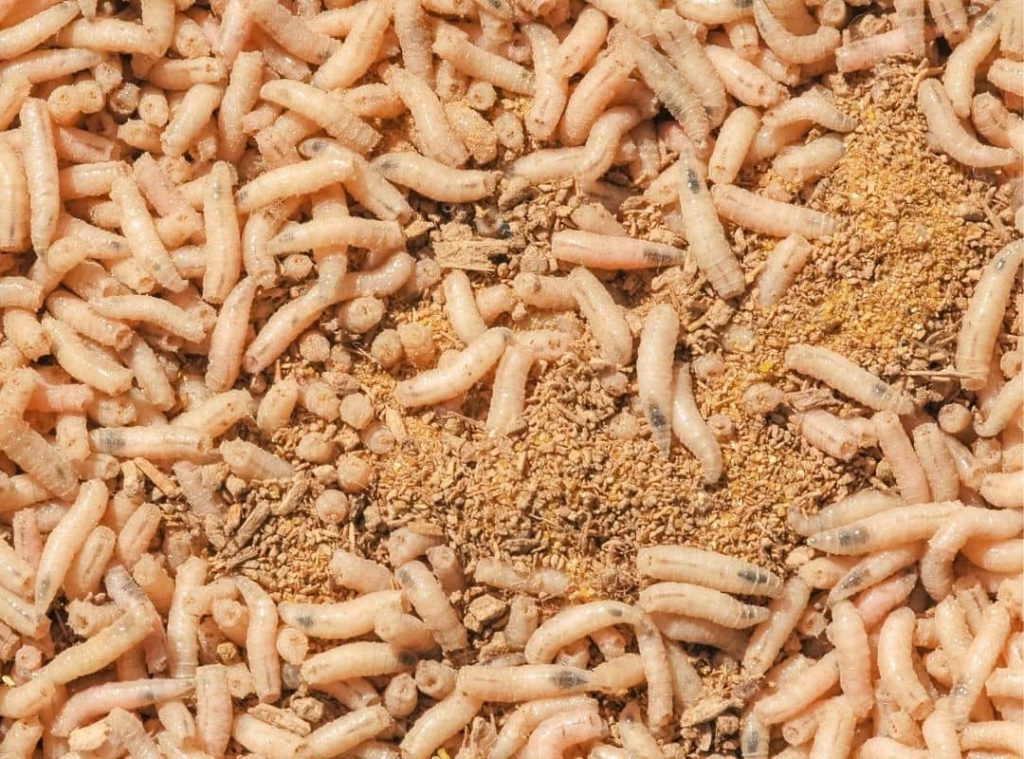
It is common to spot maggots in your compost bin and I am sure that is not what you want to see when you open the lid of the compost bin. They are such disgusting creatures and best would be to get rid of them.
However, the good thing about it is that you could remove them very easily and could avoid them re infesting your compost bins easily too. So, from this article we are going to discover why there are maggots in your compost bin, the commonly spotted maggot type, the preventive measures, the modes of overcoming the maggot’s infestation etc.
The commonly spotted maggot type is black soldier fly larvae. Adult black soldiers being attracted to the decomposing matter is what causes the spread of black soldier fly larvae. In addition to that, the possibility to lay eggs is another reason why they get attracted to compost. That said, these larvae are not harmful at all. In fact, they are quite crucial for the decomposition of the materials in the compost bin. Lets learn more about them.
What is the most common maggot found in compost?
Contents
You may come across several maggot species which could invade your compost pile. However, among all these Black soldier flies lavae is the most common maggot found in compost. If you wish to identify the black soldier fly larvae, it is quite easy to identify them. In fact, they are somewhat chubby when you compare them with the rest of other maggots. You could spot them forming in different colors.
For example, you could spot them in gray, brown or even in white. In fact the color would vary depending on what they consumed at last. When they become adults, it would be somewhat annoying to deal with them since chances are that they may tend to buzz around your face. Further once they start laying eggs in the compost pile, it would be too much to handle.
On another note, it would be worthwhile to know that animal species such as lizards’ fish and birds can fulfill their dietary requirements from some of these species. There are certain pet stores which would sell these larvae to feed chickens also. The adult versions of the flies would be about ¾ in length. Further you could spot them in shiny black. One might think that they would tend to look like wasps.
What attracts black soldier flies?
Black soldier flies tend to infest the compost piles to fulfill their dietary requirements. Compost bins usually come up with kitchen waste and many other tasty treats which would be great food sources for these flies. They would prefer to occupy warm, moist environments, which is exactly what you get in the compost piles. However, you can commonly find the black soldier fly if there is an imbalance of green and brown materials in your compost pile. If you end up using excess food waste and manure it would cause an imbalance.
If you don’t turn the compost pile regularly or if you let it retain moisture, it would ultimately result in oversaturation of the compost pile. Once conditions are too moist, it would make the compost pile more prone towards the black soldier infestations as those flies can congregate there.
Do black soldier flies bite or sting ?
Black soldier flies don’t contain functional mouthparts. As such they cannot bite. In addition to that , these flies don’t contain stinging organs either. So, even though these are pests, they cannot harm you and you don’t need to be worried about that.
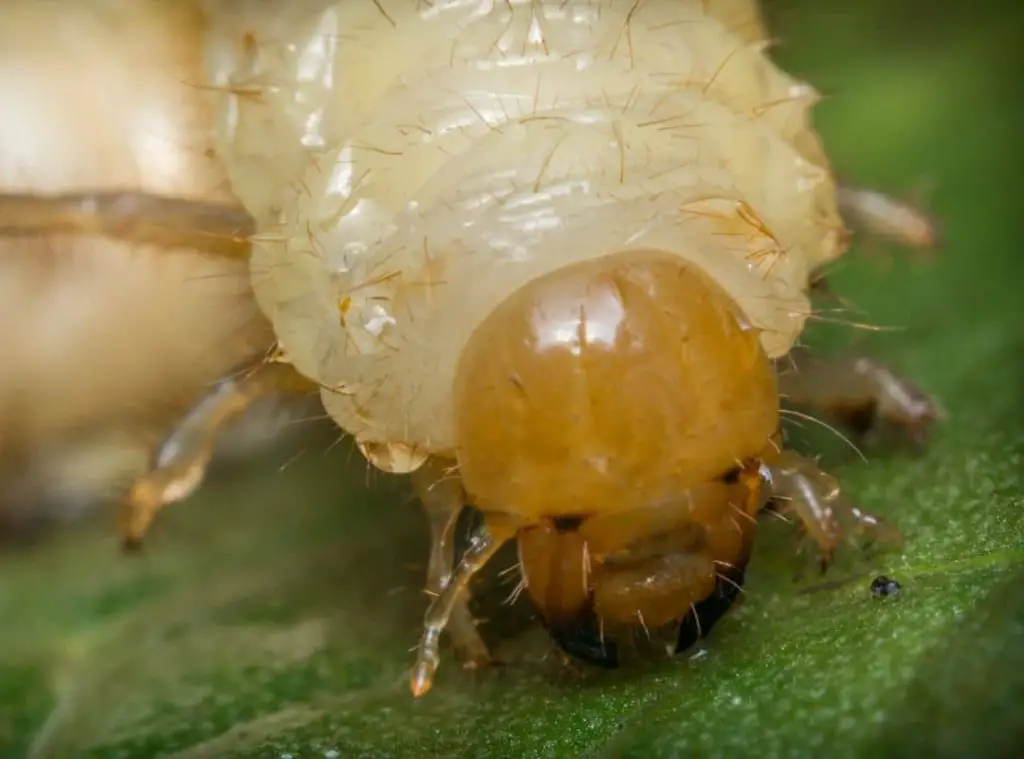
How To Avoid Maggots In Compost Bin?
The very first thing you could do to avoid them invading the compost pile is to ensure that you don’t let them settle in your compost piles. This is a very simple process to do.
01) Ensure that you are maintaining a balanced compost pile
If you ensure that you are keeping a balanced compost pile, it will allow you to avoid common pests such as maggots and the rest of other mammals invading the compost pile. Do not supply excessive levels of manure and food waste as they would contain too many nitrogen levels. Instead you need to add substances such as grass, leaves and shredded paper. You may use some brown matter to cover only the nitrogen sources. If you want to add food scraps, the best thing to do is to bury them deeply.
02) Don’t pile up too much grass clipping.
Dumping the lawn waste such as grass clipping in your compost pile is a great idea. That said, don’t dispose them all at once. If the fresh cut grass thick layers are prominent in your compost pile, it would be a great place to occupy for the flies. Instead what you could do is, spread out the clippings and allow them to wither for sometime. Next you may add them in the compost pile.
03) Install window screen
If you have used an enclosed compost system such as a tumbler I suggest you cover up whatever holes in the bin with a window screen you have. Simply you could glue it with some household chalk. Moreover, it would avoid the flies landing in your bins and stop them laying eggs as well. In addition to that it would ensure that there is a proper ventilation available in the compost pile too.
04) Avoid adding meat, dairy and fat into compost.
You may use composting food waste such as coffee grounds, fruit and vegetables waste and some garden waste to make the compost pile. However you need to refrain from using meat, fat and dairy products as much as you can. That said, these elements would also break down but at a very slow pace. While this takes place, they would make the compost pile more prone towards the flies and it would make it easier for them to lay eggs as well.
5) Consider a sealed compost bin.
It is okay if you use a sealed compost bin as you don’t need to worry whether it has a proper air flow and whether you need to water them. That said, using a sealed compost bin could be very productive in safeguarding your compost bin from maggots. However, you need to ensure that you turn the pile on an often basis so that the excess heat and excess moisture wont get built up in the compost pile.
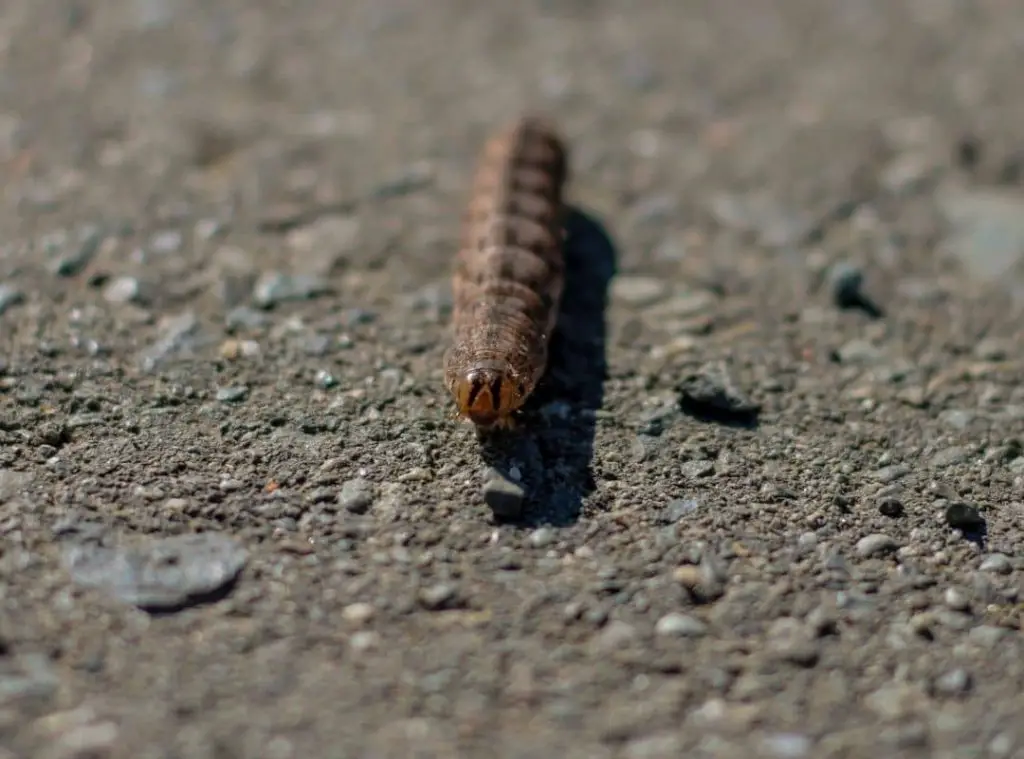
How to get rid of maggots in compost ?
Irrespective of what preventive measure you take. chances are that maggots can still land up in your compost pile. So, if you ever come across such a situation, you will find the below tips very helpful.
01) Add more brown ingredients.
Maggots usually feed on nitrogen rich matter. Hence when you add brown materials, it would allow you to overcome the maggots. Literally, they would run out of sufficient food to thrive. You could consider adding elements such as cardboard, leaves or wood chips to do this task.
02) Try out lime
You can make use of lime to get rid of the maggots in compost. However when you do this, you need to do it caution since it can impact on the pH. level of the compost pile in a bad way. That said, using lime is an effective way of getting rid of the maggots. That would speed up the decomposition of the compost pile and reduce the amount of food that larvae can depend on. You may simply use about one lime cup for every 25 cubes of compost. In addition to that you may also add elements such as pine needles or cirrus fruits instead of lime.
03) Add vinegar
Many people tend to add vinegar to get rid of the maggots in the compost bin. That said, adding vinegar could also impact on the pH levels of the compost pile in an unhealthy way. However if you wish to practice this method, you could use a tablespoon for every 20 pounds of compost. And check pH of the compost every week.
04) Feed them to the birds
Instead of just discarding the maggots , you could make use of them to feed the birds. Chickens are great fans of these and you could use them to feed the chickens with that. In fact they would be a great snack for the chickens. Apart from chickens, wild birds also prefer to feed on them.
05) Hang fly traps nearby
If the maggots keep being a menace for you, I suggest you have some fly strips and traps nearby. They would in fact draw flies to them and trap them at the end. Eventually it would avoid them laying the eggs. This would be a very productive method to practice in warm wet weather conditions.
06) You can leave them alone
If the maggots have just been there without making any greater disturbance or any impact on the compost pile, you can just let them be as they are. Always keep in mind that maggots are not harmful. Instead, they would be more helpful in breaking down the waste at a rapid pace. That said, one would find it very unpleasant and want to get rid of them.
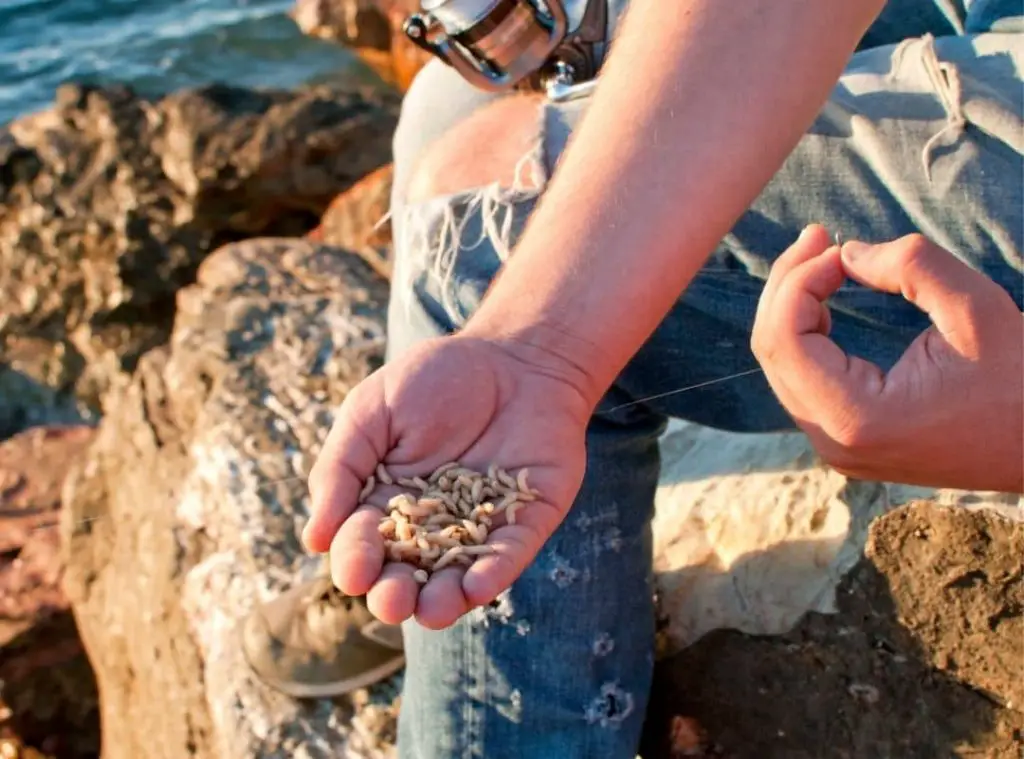
Other maggots you may come across in compost
In addition to black soldier flies, you may come across the following maggots types also.
Moth flies
Moth flies are called drain flies. They are also a small fly species which comes with round wings. They would tend to resemble the same look as moths but actually they are a fly species. You could identify them by their square bodies. In addition to that their wings would be hairy too. Besides, they would come up with antennae too. conditions such as organic materials and moist soil are in favor of them. To get rid of them, you need to control the moisture level in the compost pile and next set out fly traps.
Dark winged fungus Gants
These maggot types would usually have gray black transparent wings. In addition to that they will have long legs too. What is special about these maggot types is that they can hop from place to place. These are also quite attractive towards the moisture and fungus which is available in both compost and in soil as well. The most effective solution would be to moderate moisture level, expose the compost bin for proper aeration. Lastly you can set fly traps too.
Are maggots in compost good or bad
If you are wondering whether you need to leave the maggots as they are in the compost or try to get rid of them, there are both pros and cons of this fact. For example, if you leave the maggots in the compost, it would help decomposition to take place at a rapid rate.
In addition to that it would be a great food source for the birds such as chickens. Lastly it would be useful for the spread of healthy bacteria also in the compost pile. The only downside of leaving the maggots in compost piles would be that you will find it difficult to work with them as those creatures would be gross and unpleasant . Lastly there are people who believe that maggot larvae may cause nutrient depletion also in the compost pile.
What Is the Lifespan of Maggots?
Generally speaking maggots lifespan would be around 30 days average.
Conclusion
How to avoid maggots in compost bin? There are several ways to avoid and get rid of them but it is completely okay to have some maggots in your compost as long as you don’t find it less appealing and gross. If you find it difficult to withstand the presence of maggots, you could try out some of the aforesaid methods to get rid of them. If you think, the nutrients are also depleting rapidly you could try to get rid of them. So, I hope now you are well aware of how to identify them, how to prevent them and how to get rid of them from your compost as well.
Read Next : Can I Use Earthworms For Composting?

